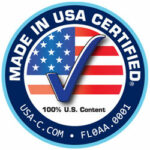Record-High Penalty for “Made in USA” Labeling Violation

Kitchen and home retail company Williams-Sonoma agreed to pay nearly $3.2 million for failing to comply with a 2020 administrative order by the Federal Trade Commission (FTC) prohibiting its marketing of imported goods as made in the United States.
As part of its settlement, announced Friday by the FTC and Department of Justice (DOJ), Williams-Sonoma admitted its failure to comply with the 2020 order. The penalty is the largest addressing violations of the FTC’s “Made in USA” rule, which was updated in August 2021.
The company also agreed to certain compliance commitments, including reporting, recordkeeping, and monitoring obligations, the FTC said.
The details: In March 2020, Williams-Sonoma agreed to stop making overly broad and misleading claims about its products being made in USA, according to a press release at the time.
The FTC defines made in USA as “any representation, express or implied, that a product or service, or a specified component thereof, is of U.S.-origin, including, but not limited to, a representation that such product or service is ‘made,’ ‘manufactured,’ ‘built,’ ‘produced,’ or ‘crafted’ in the United States or in America, or any other U.S.-origin claim.”
In 2020, Williams-Sonoma agreed to submit reports certifying its compliance with the FTC’s order.
Between April 2022 and August 2023, the agency became aware the company was marketing mattress pads made in China under its PBTeen brand as “[c]rafted in America from domestic and imported materials,” according to the DOJ’s complaint.
Following this discovery, the agency launched an investigation into six other products the company advertised as made in USA and found they also violated the 2020 order.
The FTC referred the case to the DOJ on a 3-0 vote, which in turn filed a complaint and issued a consent decree in U.S. District Court for the Northern District of California.
“[T]his settlement sets a new standard for excellence in enforcement and underscores that robust injunctive and monetary relief are the consequences facing those whose deception undercuts American producers and workers,” FTC Commissioner Rebecca Kelly Slaughter said in a statement, joined by Chair Lina Khan and Commissioner Alvaro Bedoya.
Compliance considerations: Williams-Sonoma agreed to annually certify its compliance program for five years, submit a compliance report in one year, and provide compliance notices of certain changes for 20 years, per the settlement agreement.
The Federal Trade Commission’s “Made in USA” rule prohibits marketers from labeling products as “Made in USA” unless (1) the final assembly or processing, and all significant processing that goes into the products, occur in the U.S., and (2) all or virtually all ingredients or components of the products are made and sourced in the U.S. Qualified “Made in USA” claims may be made if the extent to which the product contains foreign parts, ingredients, components, and/or processing is clearly and conspicuously conveyed, and claims that goods are assembled in the U.S. may be made if the product is last substantially transformed in the U.S., the product’s principal assembly takes place in the U.S., and U.S. assembly operations are substantial.
According to an FTC press release, a U.S. company has agreed to pay $3.175 million for multiple violations of the “Made in USA” rule. For example, the company advertised certain goods as “crafted in America from domestic and imported materials” when in fact they were wholly imported from China. The FTC also identified other products that were either wholly imported or contained significant imported content but that the company advertised as being made in the U.S. without the required disclosures.
These actions violated not only the “Made in USA” rule but also a 2020 FTC order requiring the company to halt similar deceptive claims. In fact, the FTC said, at least three of the company’s products were deceptively marketed as “Made in USA” when the company submitted its report on compliance with the 2020 order.
Copyright © 2024 Sandler, Travis & Rosenberg, P.A.; WorldTrade Interactive, Inc. All rights reserved.

